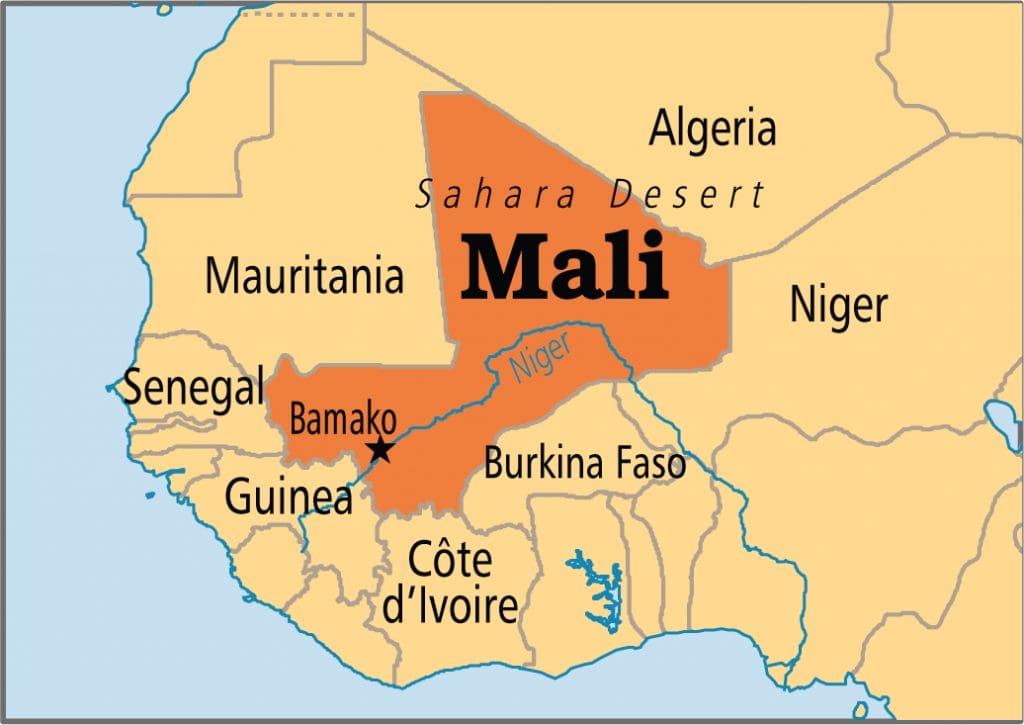The head of the coordination of ex-rebels in the north has been assassinated in Bamako, dealing a major blow to the Mali peace process.
This assassination may weigh heavily on the peace process underway in Mali. Sidi Brahim Ould Sidati, current president of the Coordination of Azawad Movements (CMA), was assassinated today, Tuesday 13 April, outside his home in Bamako.
“We have just lost our president Sidi Brahim Ould Sidati assassinated this morning in Bamako,” CMA spokesman Almou Ag Mohamed announced Tuesday. CMA is an alliance of the main armed Arab autonomist and Tuareg independence groups that had risen up in 2012 against the Malian government before concluding a peace agreement with it negotiated in Algiers and then signed in Bamako in 2015.
On behalf of the CMA, Sidi Brahim Ould Sidati, in his 60s, signed the agreement, which was initialled by both the Malian government and a coalition of armed loyalist groups organised under a platform of various movements led by a former Tuareg rebel turned regular army general, El Hadji Ag Hammou.
This agreement, considered by the international community as the best way out of the crisis in Mali, is struggling to be fully implemented by the various signatory parties, while it is being heavily abused on the ground by jihadist groups. Briefly allied with the Tuareg nationalist rebels at the start of the rebellion in 2012, these armed Islamists quickly turned against them, before driving them out of the main towns occupied at the time.
Still very active in northern Mali today, the jihadists have largely extended their field of action in the rest of the country, as in the centre, but also in neighbouring countries such as Niger or Burkina Faso. The 5,000 soldiers of the French Barkhane force, assisted by the Malian army and more than 12,000 UN peacekeepers, are unable to contain these Islamist insurgents, while the conflict has already caused thousands of deaths and injuries and hundreds of thousands of displaced people and refugees.
Sidi Brahim Ould Sidati, a former mayor of Ber, a small town in the Timbuktu region, was one of the main figures of the Arab Movement of Azawad (MAA), a political and military organisation created in the aftermath of the insurrection launched in 2012 by the Tuareg National Movement for the Liberation of Azawad.
Based mainly in the Timbuktu region, the MAA is a founding member of the CMA, the coordination of armed groups in the north set up on the eve of the start of peace negotiations between Bamako and the former rebels and allies, under the auspices of the international community led by France and Algeria, from 2013.
The assassination of the CMA leader comes at a time of extreme fragility in Mali. A political transition initiated by the junta that seized power in Bamako last August after toppling controversial President Ibrahim Boubacar Keita is expected to lead to elections in the coming months that should result in a return of power to civilian hands in Bamako.
Sidi Brahim Ould Sidati “was an important actor in the peace process,” said transition Prime Minister Moctar Ouane. He was to receive the northerner leader later in the day to discuss the ongoing peace process in Mali.
Referring to an “abominable act,” the head of the Malian government expressed his “shock” on social media and promised an investigation to identify and judge the killers.
The head of the United Nations Mission in Mali (MINSUMA), Chadian Mahamat Saleh Annadif, also said he was “outraged” by the assassination of the CMA leader, who “was one of those Malians who really believe in and work for peace and unity in Mali,” according to him.
According to experts on Mali and the movements of the former rebellion, the death of the CMA leader was most likely ordered. Was it an action by the Jnim jihadists, linked to al-Qaeda, to make Ould Sidati pay for his commitment to the peace process with Bamako? Was it the result of a dispute within the CMA? Or is it an inter-tribal score-settling that stems from one of those ancient and intractable conflicts that have always plagued the Arab communities of Timbuktu, where Ould Sidati comes from?
TE/lb/abj/APA


